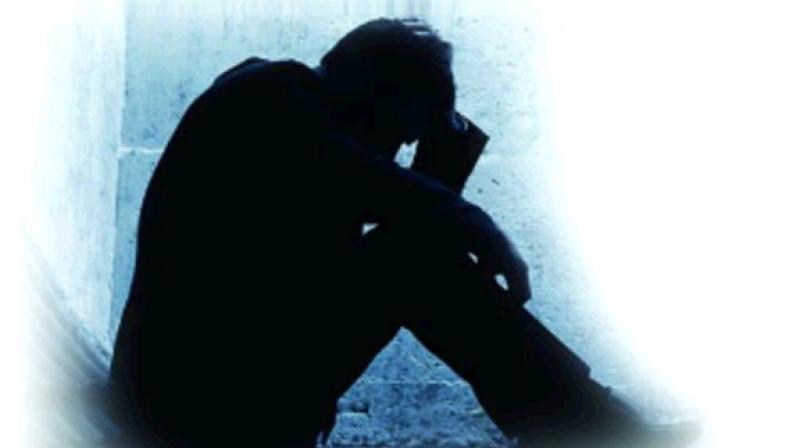Kerala: No Health Without Mental Health
Kerala needs a comprehensive strategy to address alarming deterioration in mental health

Thiruvananthapuram: Kerala, which boasts of exemplary social and health indicators on par with Western countries, is now confronted with a pressing crisis the alarming deterioration of mental health.
The incidents of suicides, familicides and gruesome crimes fuelled by drug abuse, particularly among youth, clearly point to a severe mental health crisis.
Each day brings forth harrowing reports of heinous crimes and tragic losses of life as individuals succumb to the overwhelming pressures of domestic, professional and financial struggles. Experts say immediate attention and decisive action are required to address this mental health emergency and ensure the well-being of Kerala's citizens.
The alarming truth is that mental illness is rampant in Kerala, with a staggering 12.43 percent of the population -1 in every 6 individuals - requiring psychiatric intervention, as revealed by a survey conducted by the Kerala State Mental Health Authority and National Health Mission across 5 districts. Make no mistake, the situation has only worsened, with a whopping 15-20 percent of people, particularly in urban areas, grappling with some form of mental affliction, predominantly depression.
The harsh reality is that anxiety disorders, depression and schizophrenia remain the most commonly reported mental health problems and it's high time the authorities took decisive action to address this growing crisis.
It is alarming to note that 60-70 per cent of mental health cases are attributed to severe conditions like schizophrenia and bipolar disorder. According to experts, a staggering 80 percent of cases involve mild depression and anxiety - conditions that can have devastating consequences if left unchecked.
Depression, in particular, is an undertreated mental health issue. The statistics are stark; if left untreated, approximately 15 percent of individuals will develop suicidal tendencies.
The Kerala government identified
high sucide rates as a major challenge eigh years ago and introduced plans to reduce the rate of suicide from 24.9 per lakh population to 16 per lakh by 2020, aligning with the UN's Sustainable Development Goals. However, the suicide rate has alarmingly increased to 28.5 per lakh in 2024, clearly indicating that the government's plans have fallen short of expected results.
Drug use and its impact on mental health
Many believe it's time for Kerala to take decisive action against the alarming rise of chemical drug use, which has unmistakably contributed to the surge in heinous crimes, including gruesome mass murders. The recent incidents involving young assailants under the influence of drugs have sent shockwaves throughout the state, calling for immediate measures from the government to address this crisis.
Chief Minister Pinarayi Vijayan's 2022 commitment to wage a war on drugs has not yielded the desired results, and the continued blame game between the ruling party and opposition is only exacerbating the problem. The Kerala Assembly's recent discussion on the growing drug use among youth highlighted the urgent need for a consensus on fighting the drug menace, cutting across party lines and petty politics.
Excise Minister M B Rajesh says the surge in violence, particularly among young people, has reached alarming levels. He underscored the need for a comprehensive approach to address this issue, recognising that it is not just about drug use but also about tackling the underlying mental health problems plaguing the society.
Opposition Leader V D Satheeshan reminded the minister that rampant drug abuse and related heinous crimes have created a panic in Kerala society.
It is time for the government to walk the talk and implement effective strategies to address mental health issues, curb drug abuse and bring perpetrators of violence to justice. The clock is ticking, and Kerala cannot afford to wait any longer.
Bullet points
One in eight persons (12.43 per cent ) has mental illness requiring psychiatric intervention.
Current prevalence of any mental disorders - 11.3 per cent
Alcohol related problems 1.46 per cent.
Rate of smoking 7.22 percent (national average 20.89 per cent)
Dementia and cognitive impairment prevalence 10.48 per cent among 60 years and above.
Suicide risk 12.6 per 100 persons (national average 6 percent)
Prevalence of high suicidal risk 2.23 percent (highest among all states)
Anxiety related disorders 5.43 /100 (national average 3.5 per cent)
75 per cent mental health patients under treatment coverage
42.88 per cent depend on government hospitals for treatment, 29.24 on private hospitals.

